Since the 1990s, each year Bilkent University Electrical and Electronics Engineering (EEE) Department and the IEEE Bilkent Student Branch organize the Graduate Research Conference (GRC), where Bilkent EEE graduate and selected undergraduate students present their work in a festival of information-sharing. During this day-long event, Bilkent EEE graduate students describe their state-of-the-art research projects in interactive oral and poster presentations and selected undergraduate students present their course project demos.
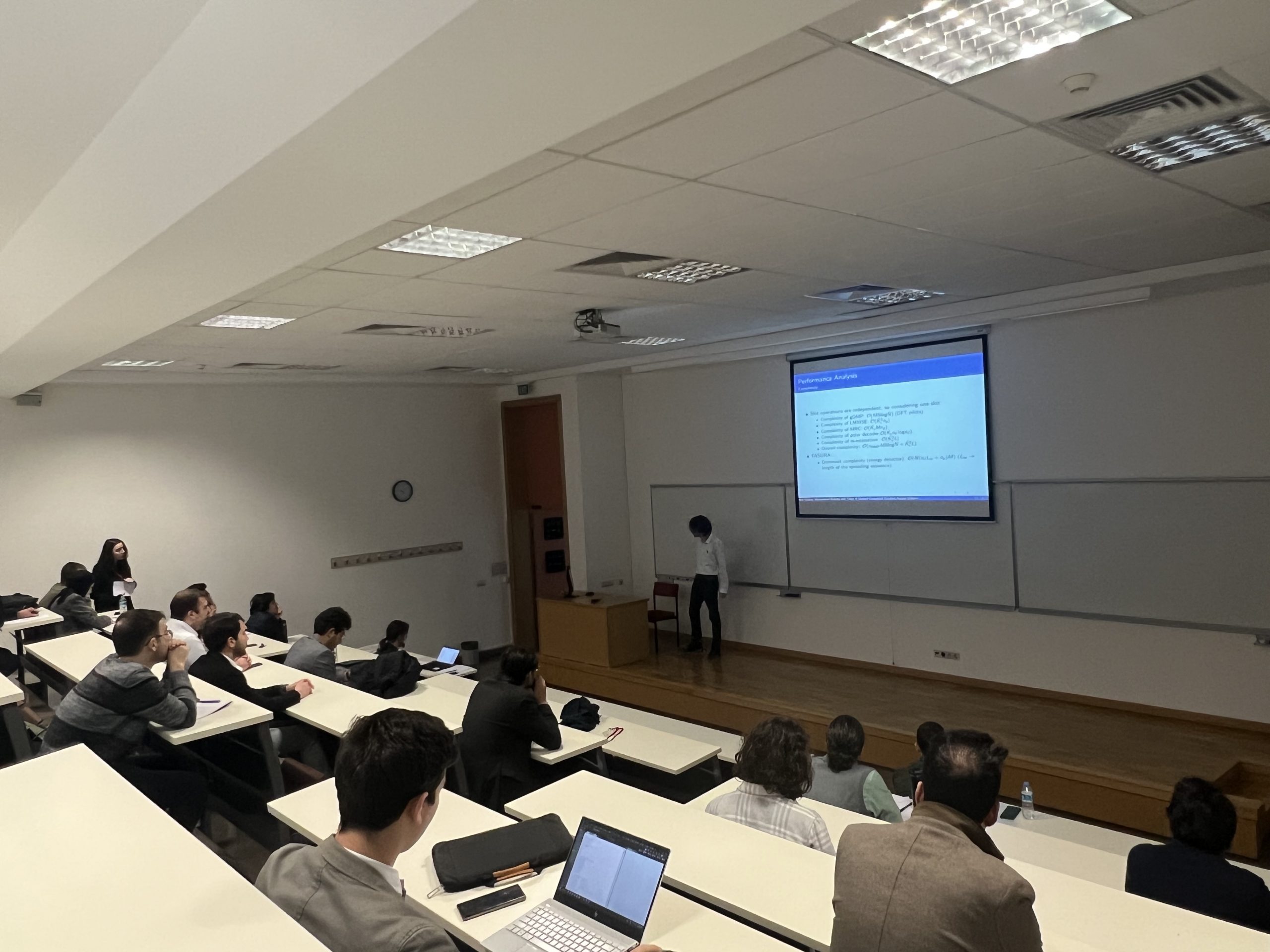
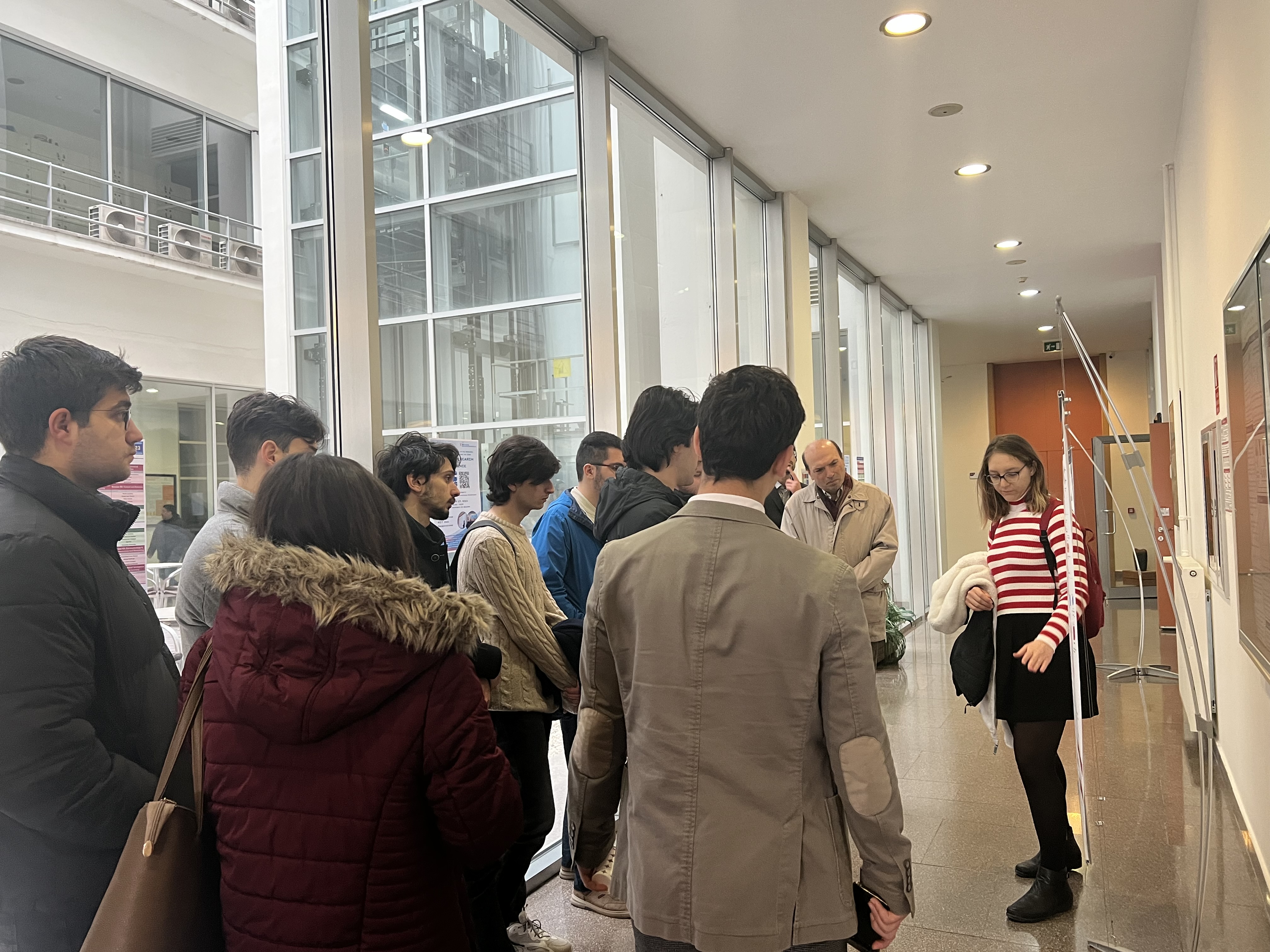
The 33rd GRC took place face-to-face on Friday, 27 January 2023 in the EE Building. The event offered a day full of knowledge sharing, and a unique opportunity for undergraduate students to experience the world of research in engineering and science conducted in the EEE Department at Bilkent University.
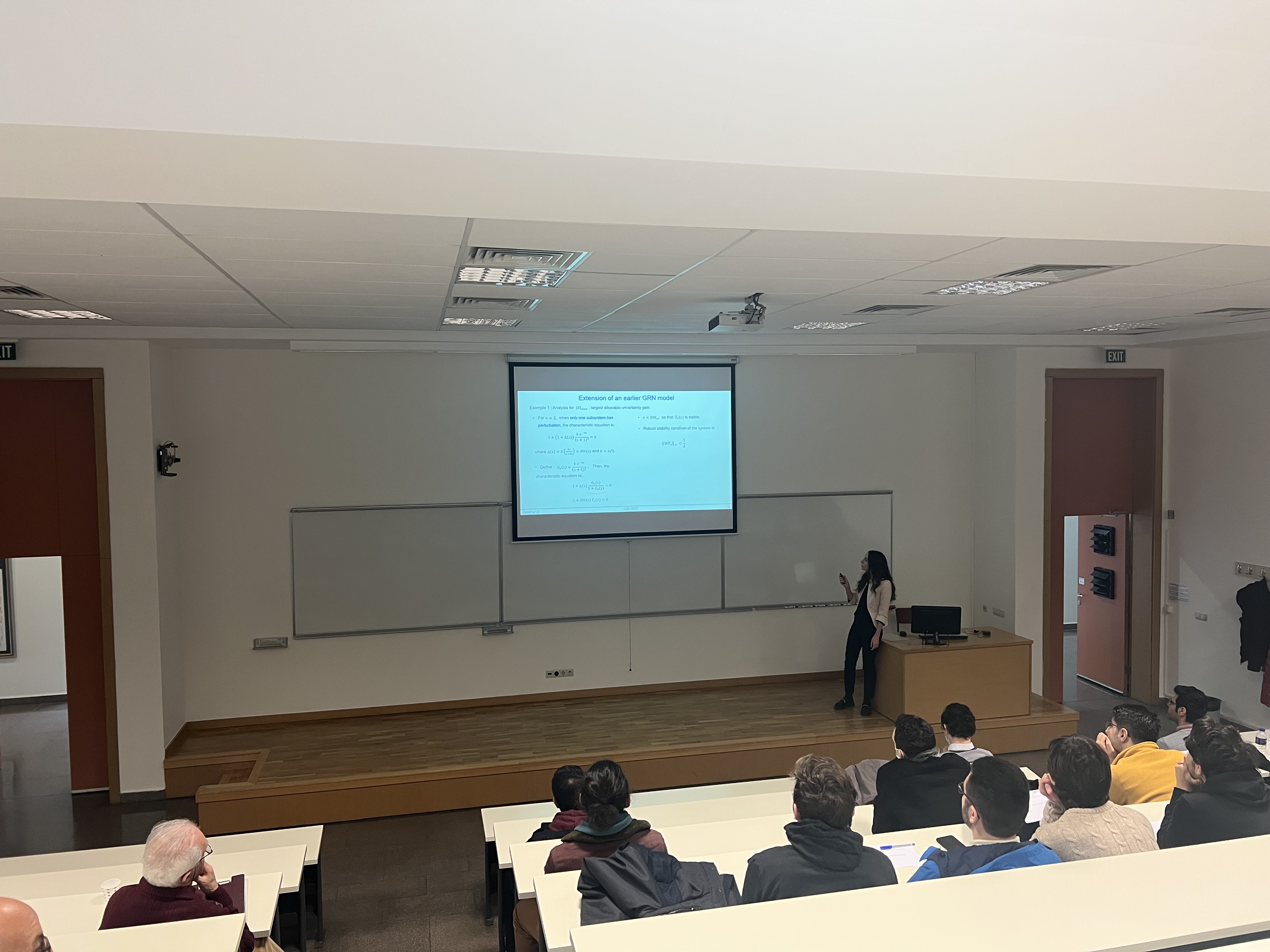
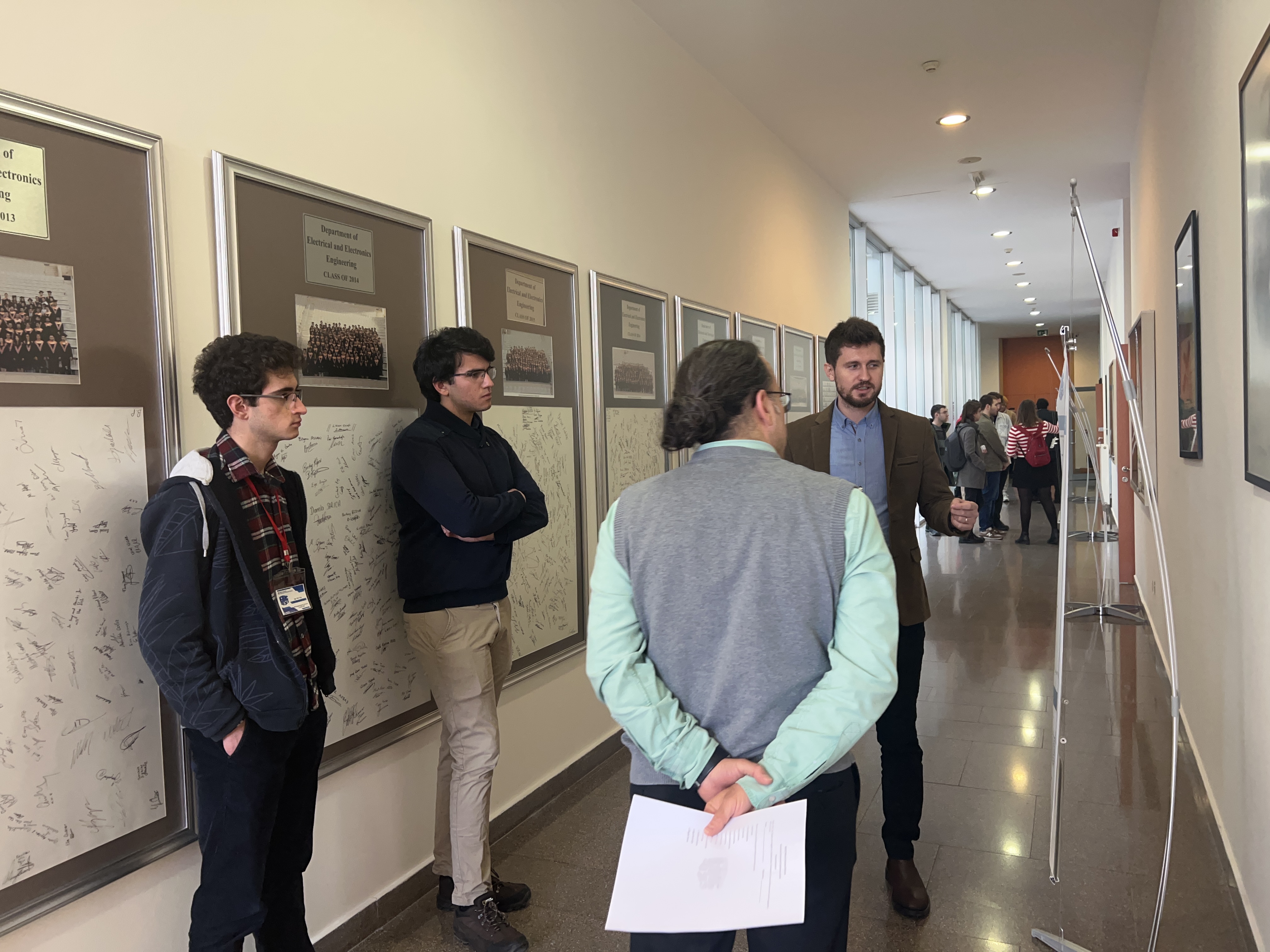
This year’s schedule included 48 oral presentations grouped into 12 sessions, with three sessions taking place concurrently during each of the 4-time blocks. In the presentations, the graduate and selected undergraduate students shared their novel research projects and answered questions from the audience. Various areas of electrical and electronics engineering, including artificial intelligence and machine learning, signal processing, communications and networking, biomedical engineering, electronics, electromagnetics, control and robotics, optics and photonics, and nanotechnology, were covered. More than 200 participants, including Bilkent EEE graduate and undergraduate students, attended the conference.
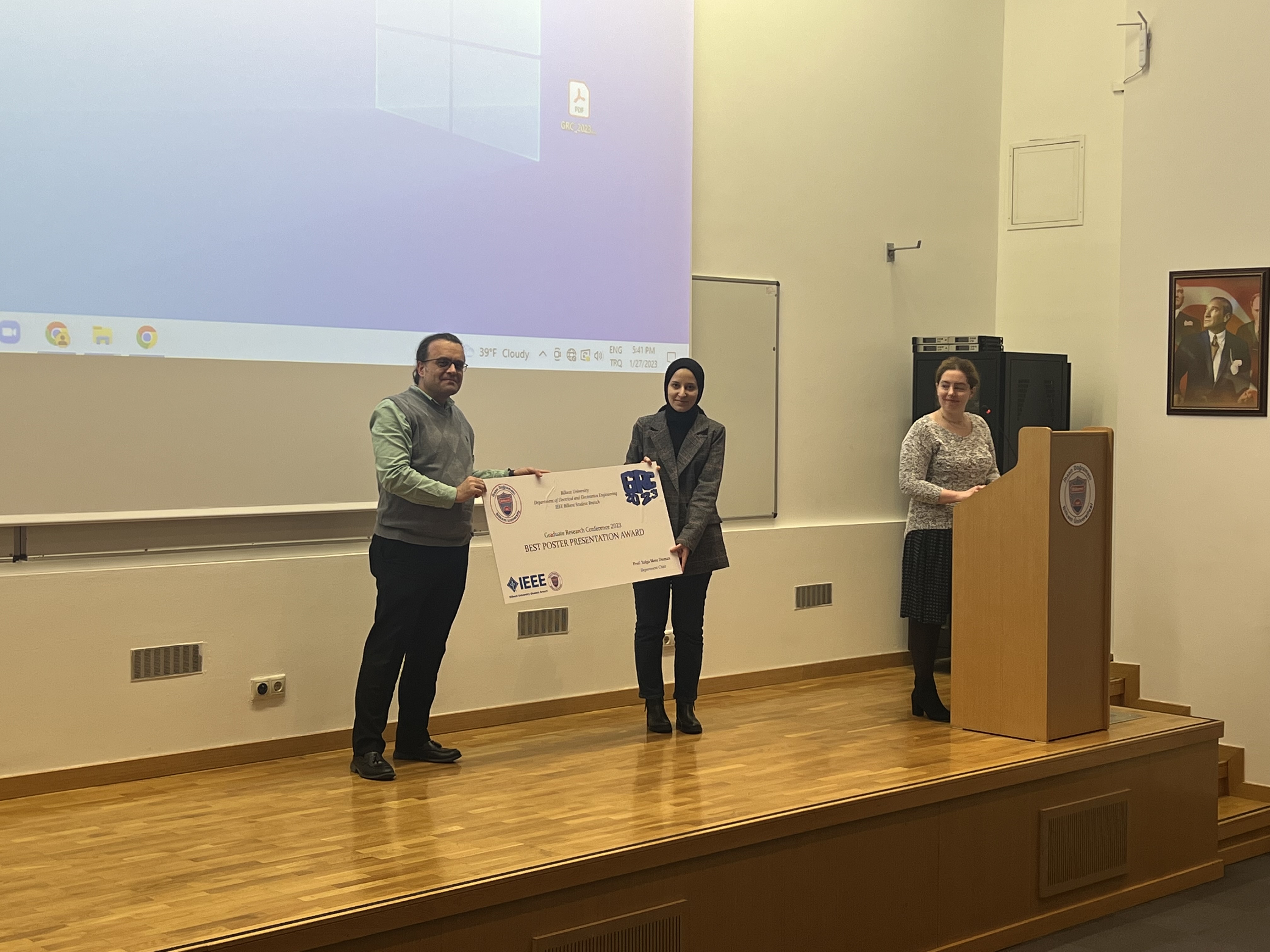
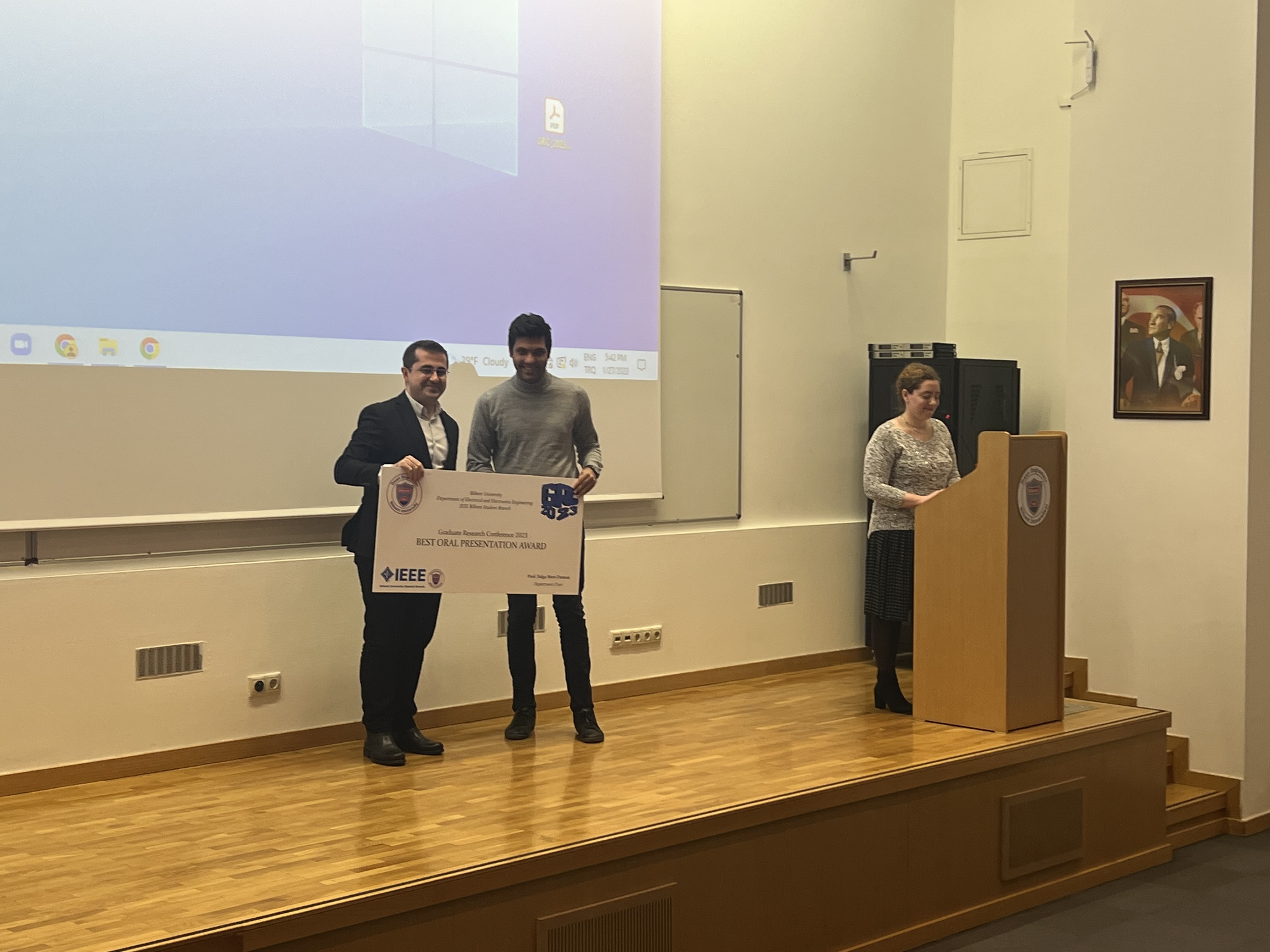
The conference concluded with the award ceremony, at which 3 best oral presentation awards and 1 poster presentation award were given out by the department. The conference was chaired by Asst. Dr. Muhammed Ömer Sayın. The graduate students Merve Begüm Terzi, Issifu Iddrisu and Ahmet Safa Öztürk, along with the undergraduate students from the IEEE Bilkent Student Branch, took part in organizing the event. More information about the GRC can be found at https://ieee.bilkent.edu.tr/grc2023/index.html
Below are the awarded talks presented at the conference:
Best Oral Presentation Awards:
- ResViT: Minimum Electric Field Gradient Array Body Coil with Adjustable Regions of Linearity
Reza Babaloo, Ergin Atalar

The rapid switching of magnetic fields (B-fields) induces electric fields (E-fields) within the human body, which causes peripheral nerve stimulation (PNS). A large region of linearity (ROL) in whole-body gradient coils exposes large body areas to switching magnetic fields, inducing high E-fields. However, a large ROL is not necessary for all MRI examinations. Several short-body and head-insert gradient coils with small ROL were developed to increase gradient strength without causing PNS. Recent gradient design algorithms incorporate constraints on the E-fields, leading to PNS-optimized gradient coils. Despite these efforts, further optimization cannot be performed after coil fabrication. A body gradient array coil (made up of multiple coil elements) can produce linear gradients in different ROL shapes by optimizing the feeding currents, which can alter the induced E-fields. This work shows the performance of the gradient array coil in minimizing E-field when the desired gradient is required in various ROL.
- An Absorbing Markov Chain-based Approach for the Distribution of Age of Information
Ege Orkun Gamgam, Nail Akar

The concept of Age of Information (AoI) has been introduced for quantifying the timeliness of knowledge in networked control and monitoring systems. In this work, we study the distributions of the AoI and peak AoI (PAoI) for the Generate-At-Will (GAW) and Random Arrivals with Single Buffer (RA-SB) servers with general number of information sources. For both models, the information sources are heterogeneous, i.e., they have different i) general phase-type service time distributions, ii) priorities, and iii) packet error probabilities. To allow differentiation among the sources, the GAW server probabilistically schedules a fresh packet for one of the sources, whereas, for the RA-SB server, the buffer manager probabilistically replaces the source-n packet in the single buffer with a new packet arrival from another source-m. The exact distributions of the AoI and PAoI are obtained using the well-established theory of absorbing Continuous-Time Markov Chains. With numerical examples, we present the adverse effect of the variances of service times on AoI-induced performance metrics and also show that the RA-SB server can be tuned to outperform the previous buffer management approaches.
- A-optimality and D-optimality-based Optimal Precoding for Unknown Vector Parameter Estimation in the Presence of a Smart Eavesdropper
Erfan Mehdipour Abadi, Cagri Goken, Cuneyd Ozturk, Sinan Gezici
Best Poster Presentation Award:
- Federated Learning with Over-the-Air Aggregation over Time-Varying Channels
Büşra Tegin, Tolga M. Duman
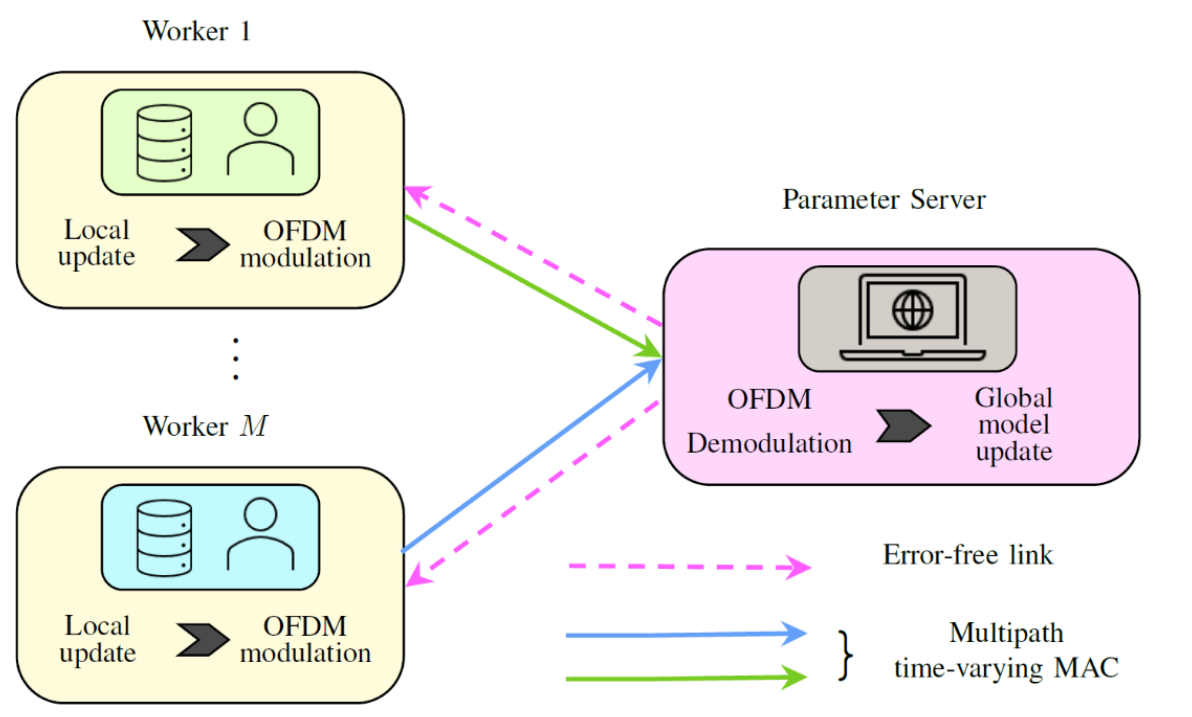
We study federated learning (FL) with over-the-air aggregation over time-varying wireless channels. Independent workers compute local gradients based on their local datasets and send them to a parameter server (PS) through a time-varying multipath fading multiple access channel via orthogonal frequency-division multiplexing (OFDM). We assume that the workers do not have channel state information, hence the PS employs multiple antennas to alleviate the fading effects. Wireless channel variations result in inter-carrier interference, which has a detrimental effect on the performance of OFDM systems, especially when the channel is rapidly varying. We examine the effects of the channel time variations on the convergence of the FL with over-the-air aggregation, and show that the resulting undesired interference terms have only limited destructive effects, which do not prevent the convergence of the learning algorithm. We also validate our results via extensive simulations, which corroborate the theoretical expectations.